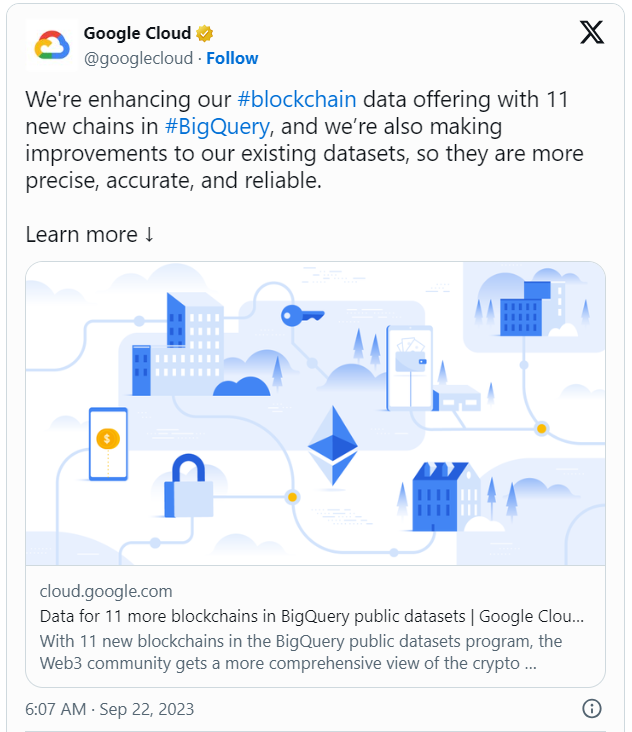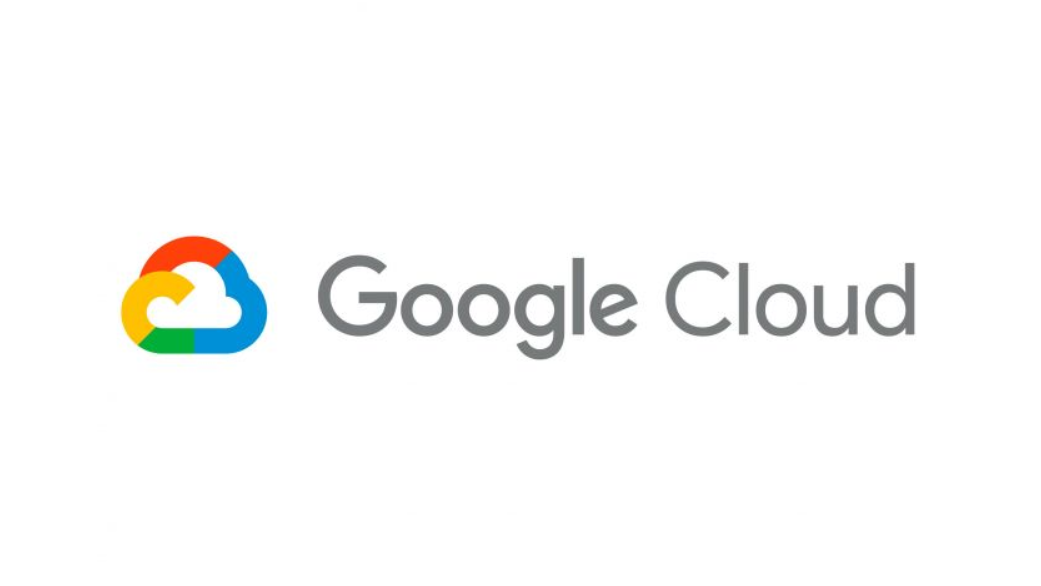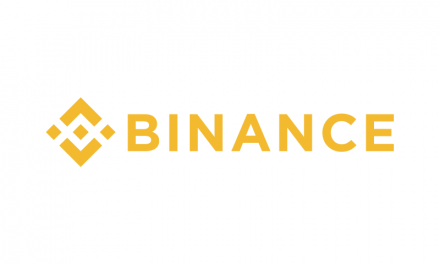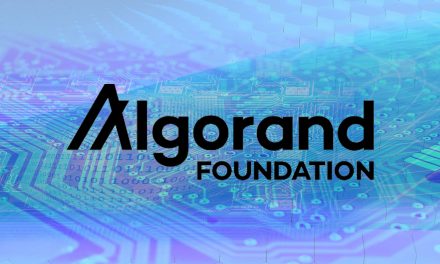Google Cloud’s BigQuery service, which serves as a robust and versatile data warehouse allowing enterprise companies to store and query their data, has expanded its capabilities by adding 11 more blockchain networks, according to an announcement made on September 21. This addition includes several prominent blockchains like Avalanche, Arbitrum, Cronos, Ethereum’s Görli testnet, Fantom, Near, Optimism, Polkadot, Polygon’s mainnet and Mumbai testnet, and Tron.
BigQuery is not solely a private data warehouse. It offers several public data sets that any user can query, and these range from Google Trends and American Community Service demographic information to Google Analytics, among others. Google has been progressively enhancing BigQuery’s blockchain compatibility. It initiated a Bitcoin data set in 2018, added Ethereum later the same year, and by February 2019, Bitcoin Cash, Dash, Dogecoin, Ethereum Classic, Litecoin, and Zcash were incorporated. With the latest addition, BigQuery now supports data from a total of 19 blockchain networks.

In order to streamline and enhance the user experience for executing blockchain queries, Google has introduced new features aimed at handling the long-form decimal results common in blockchains. This feature enhancement is projected to allow more precise access to decimal digits in blockchain data and to minimize rounding errors during computation, as per Google’s claims.
The continuous and comprehensive expansion in BigQuery’s blockchain offerings indicates Google Cloud’s growing focus and interest in blockchain technology in 2023. Google Cloud has also engaged in partnerships aimed at leveraging blockchain technology. For instance, it formed a partnership with Voltage, a provider of infrastructure for the Lightning Network, on July 7. Moreover, it collaborated with Web3 startup Orderly Network on September 14 to facilitate the provision of off-chain components essential for decentralized finance (DeFi).
This series of integrations and partnerships underline Google Cloud’s commitment to ensuring its services are well-aligned with the evolving technological landscape, especially the blockchain sector, and highlight its endeavors to offer more comprehensive and advanced solutions to its users in the realm of decentralized technology.





